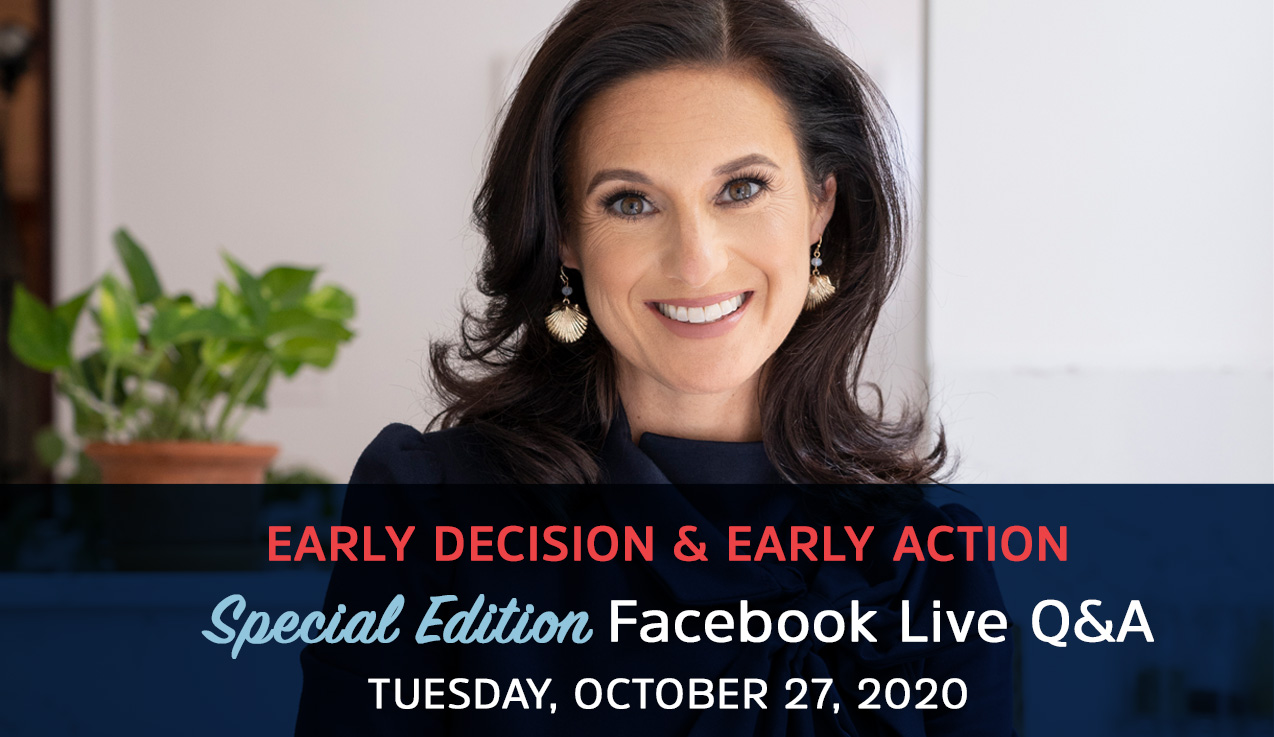When the pandemic hit back in the spring, I wrote a blog about how the Class of 2021 would make history in this groundbreaking admissions cycle. New policies emerged out of thin air and colleges got to work on adapting their processes to meet the needs and demands of their audience.
Months later, high school seniors are staring down their first round of deadlines for Early Decision and Early Action. They wonder whether applying early will help or hurt them.
Here is what you need to know:
1. Be on the lookout for colleges that extend their deadlines.
Both Duke University and Cornell University extended their Early Decision deadlines from November 1st to November 16th; University of Florida's Early Action deadline moved from November 1st to November 16th as well. This provides more time for students, college counselors, and teachers to get materials submitted. But it also is a strategy for colleges as they hope more time will lead to more applications if they are tracking behind in totals from previous years. If you learn of a college that has extended its deadline, that usually means that its applicant pool is not as large as it was hoping for. Check your deadlines just to be sure. You may have a few more days or weeks than you thought!
2. Early Decision applicant pools will be smaller this year, yet colleges will need to rely on this binding program more than ever.
With many families unable to visit colleges and economic uncertainty looming, the number of students being able to commit to an Early Decision program will take a hit this year. Students who apply to Early Decision programs already experience higher odds of admission. This year, expect them to be even higher.
3. Early Action applicant pools will soar, specifically, the large public/state universities with non-restrictive Early Action programs.
Many wonder whether a student is better off applying in Regular Decision if a college's Early Action pool ends up being larger than ever. The truth is that these colleges aren't sure what their Regular Decision applicant pool will look like and it is hard to predict acceptance rates in this scenario.
4. Most colleges have suppressed the testing section of the application to ensure that they don't view a student's test scores who wants to apply under their test optional policy.
When you look at your PDF right before you submit your application through the Common Application, for example, you may not see your test scores listed. However, if you indicated on the college's supplement that you want your test scores evaluated, I promise you, they will be!
5. Expect most colleges to embrace the test optional policy this year.
For the most part, I anticipate colleges admitting students who don't submit test scores at a similar rate to those who do. If not, colleges will put themselves at risk of being sued. The significant number of students applying without test scores will necessitate colleges to respond fairly in this unprecedented environment. There are simply too many students applying under the test optional policy without test scores for colleges to rely solely on students with test scores.
Related reading: When Is the Best Time to Submit Your College Applications?
As students submit their Early Decision and Early Action applications in the coming days and weeks, we will begin to see a shift in college admissions. Students will hold more power than they think this year. Colleges will need to be more accommodating, generous, and deferential to students in this early round of admissions and beyond. In the court of public opinion, colleges will need to rise to the occasion. This is what has always been expected of the students applying, and now colleges will be held to the same standard.











